Search
Search Results

Definition
Gnosticism
Gnosticism is the belief that human beings contain a piece of God (the highest good or a divine spark) within themselves, which has fallen from the immaterial world into the bodies of humans. All physical matter is subject to decay, rotting...
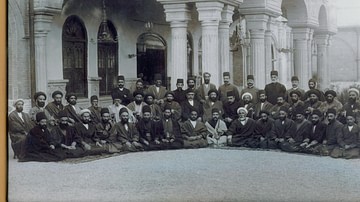
Image
Representatives of the First Iranian Parliament
Representatives of the first Iranian Majlis (parliament) in front of the military academy, which served as the first parliament building, Tehran, 1906.
National Library and Archives of the Islamic Republic of Iran, World Digital Library.
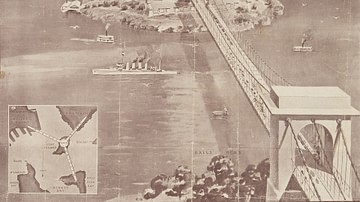
Image
Ernest Stowe's Proposed Sydney Harbour Bridge Design
Proposed Sydney Harbour Bridge design by Francis Ernest Stowe, Australian architect and engineer, 1922. The three-span bridge design that would link Millers Point with Balls Head and Balmain, featuring a central tower that would be a war...

Image
Riggers on the Sydney Harbour Bridge
Riggers on the Sydney Harbour Bridge during its construction, photo by Ted Hood, 1931.
Mitchell Library, State Library of New South Wales, Sydney.

Image
A Warship and the Sydney Harbour Bridge
The Java, a warship of the Dutch East Indies, berthing with the Sydney Harbour Bridge construction in the background, photo by Ted Hood, c. 1930-32.
Mitchell Library, State Library of New South Wales, Sydney.
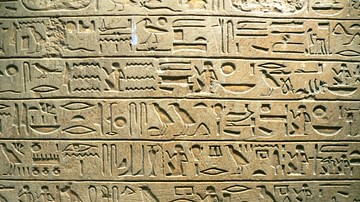
Definition
Ancient Egyptian Literature
Ancient Egyptian literature comprises a wide array of narrative and poetic forms including inscriptions on tombs, stele, obelisks, and temples; myths, stories, and legends; religious writings; philosophical works; wisdom literature; autobiographies...
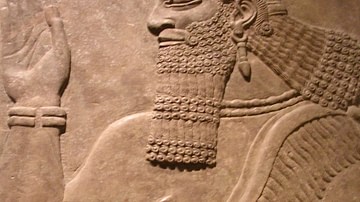
Definition
Neo-Assyrian Empire
The Neo-Assyrian Empire (912-612 BCE) was the final stage of the Assyrian Empire, stretching throughout Mesopotamia, the Levant, Egypt, Anatolia, and into parts of Persia and Arabia. Beginning with the reign of Adad Nirari II (912-891 BCE...

Video
The Poet and Scholar Callimachus of Cyrene
Did you know that the prototype of a library’s card catalog was invented over 2000 years ago by Callimachus of Cyrene? This video is all about the great scholar and poet Callimachus of Cyrene who revolutionized library science and literature...
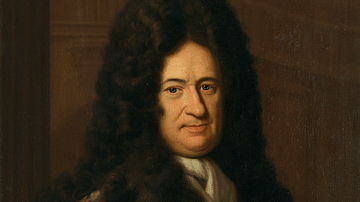
Definition
Gottfried Wilhelm Leibniz
Gottfried Wilhelm Leibniz (1646-1716) was a German polymath who became well-known across Europe for his work, particularly in the fields of science, mathematics, and philosophy. Leibniz's rationalist philosophy attempted to reconcile traditional...
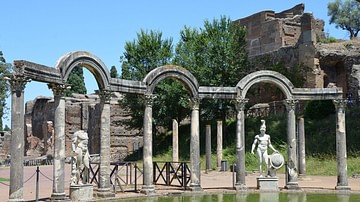
Article
Visitor’s Guide to the Monuments of Hadrian’s Villa
Hadrian’s Villa near Tivoli, Italy, is an opulent, sprawling garden-villa covering some 120 hectares (296 acres). It was built by Emperor Hadrian (76-138 CE) between 125-134 CE for use as his country estate, although the land may have originally...